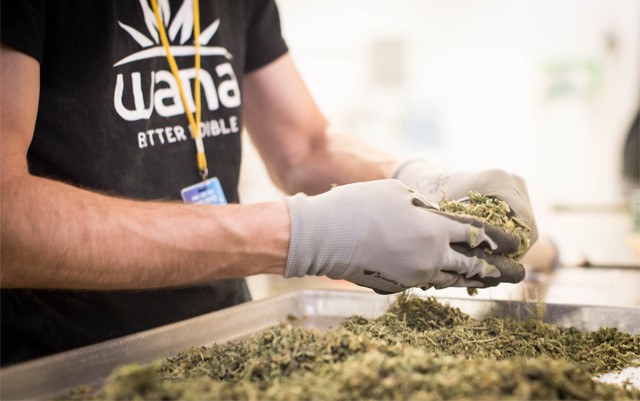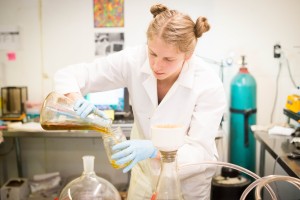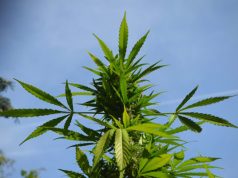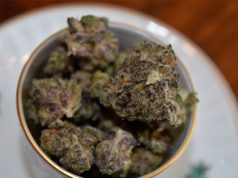
Wana is one of the largest manufacturers of edibles in Colorado. They are the proud makers of the acclaimed sour gummies available in dispensaries all over that state – and now they are making moves to bring their recipes across state lines.
Tucked away, off of an inconspicuous road in the mountains of Boulder, the co-founders of Wana gave me a behind the scenes tour of their patented machinery, plus some troubling insight into the issues facing cannabis companies in Colorado.
The number one issue is pesticides, John Whiteman and Nancy Whiteman, co-founders of Wana, said. The biggest problem for all cannabis manufacturers and cultivators in Colorado are the strict and ever-changing pesticide regulations.
“It’s true, we don’t want people to get hurt,” said Nancy Whiteman. It’s a state-by-state issue and in Colorado, there’s zero tolerance for pesticides. That’s not the case for cultivated plants, such as tomatoes – which are tested parts per million, as opposed to cannabis, which is tested parts per billion in the Mile High State. “It’s a question of reliable testing when it would come from other places in the chain of custody,” John Whiteman added, the ‘drift’ from other farms is a major concern. The ‘drift’ refers to the contaminated soil from nearby farms that could be transferred to soil used in cannabis cultivation – making it test positive for pesticides and effectively red-flagging that plant, any plants downstream of it, and any manufactured product that contains any part of those plants.

The challenge with the budding cannabis plant is, unlike veggies, you can’t wash off a flower.
This is the biggest issue facing the cannabis industry to date. Cannabuisinesses big and small are constantly at risk of losing any commodity a pesticide-laced cannabis plant touches. That goes for topicals, edibles, and the flower. The losses for a juggernaut in the edibles space like Wana could be in the millions – and currently there are no insurance companies willing to cover the unusable goods.
Wana uses about 100 – 200 pounds of cannabis trim a week for infused edibles.
Trim goes through Wana’s extraction process, which is then infused into their tasty treats. Any cannabis plant that tests positive for a banned pesticide is tossed, and so are any edibles or medicinals.
If any of the trim is traced back to a contaminated plant, it’s not allowed on the market.
As one of the leading edibles manufacturers in Colorado, Wana believes it’s their duty to raise the bar when it comes to food standards in the edibles space. They have a wild card in their corporate pocket. Wana has hired Mica Gross, Director of Operations, to implement standards that are not yet required in the cannabis industry. Wana believes in their values, “not just our recipes, but how to design and move product. It’s the complete package of how business should operate and will weed out people who don’t want to comply with it,” says Nancy Whiteman.
The standards she is referring to are found under the Food Modernization Act (FSMA), which was passed by President Obama in 2011 for the Food and Drug Administration (FDA). The sweeping reforms aim to “ensure the U.S. food supply is safe by shifting the focus from responding to contamination to preventing it,” according to the FDA website.
These new FDA regulations take effect on small businesses in two years, other businesses have one year to comply.
But when can you expect to see Wana brand infused products in a dispensary near you? If you are on the East Coast, the answer is unclear. Wana says the manufacturing of THC-infused edibles is so drastically different in each state that it’s impractical for Wana to try their hand at wholesale – another problem with that model is that it’s illegal to sell cannabis across state lines.
Instead, Wana is looking for a licensing play. They told me that they seek out trustworthy partners in states like Nevada and Oregon to sell their Intellectual Property (IP, such as their infusing processes and more importantly – their recipes. “Wana is known for consistent quality and reliability,” said Nancy Whiteman. Wana separates themselves from the pack with a testing policy that makes sure each tincture is tested for potency, even if they don’t have to under state law.
Wana hopes to have their product in Nevada through local partnerships for manufacturing this summer.





